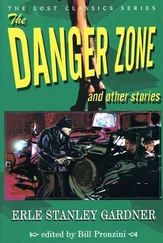“I understand,” he had told her and then, curious, had asked, “Were you raised in the South, by any chance?”
“Well, sort of, sir. Southern Oklahoma.”
“Close enough.” Barnard had smiled, and that was how they had left it.
Evvie Flemmer was one of Casey’s best research scientists. Perhaps even the best who had worked for him, he had told Barnard. She was short and a bit stout and her wardrobe, as far as Barnard had been able to tell, was exclusively J. C. Penney. Today she wore a brown dress whose hem hung below her knees. Her legs dropped without a single curve into the practical black flats she wore every day. She used no makeup and kept her brown hair in a short blunt cut, easy to wash, easy to dry. She rarely smiled and Barnard had never heard her laugh, but neither was she openly angry or cynical. Just very, very serious, was how he eventually came to think of her.
Barnard knew that Flemmer was thirty-eight years old, single, and lived alone. She was brown-eyed and pale-skinned, not from Irish heredity, like Casey, but from spending virtually every waking hour in BARDA’s laboratories. In all his time in government, Barnard had encountered only one or two scientists more dedicated to their work, and those people had not been paradigms of mental health.
In fact, a few months after she arrived, Barnard grew concerned over her endless hours in the labs and said something to Casey about her life outside BARDA. Casey shrugged. “What life?” Then he added, “I worried a bit at first, too, Don. But I think Evvie is happiest when she’s doing science. I keep an eye on her, but she’s fine.”
“I envy you,” Barnard said now, raising his cup in her direction. “These days, I feel like a slug if I don’t get six or seven hours a night. Eight is better.”
“Hell, Don, we were the same way when we were young and full of beans like Evvie,” Casey said, patting Flemmer’s shoulder.
Flemmer blushed. Barnard knew that Casey and his wife, Adell, had never had children and, as devout Catholics, they’d found the barrenness especially painful. So Lew had a tendency to “adopt” some of the younger people who worked under him. His paternal feelings for Evvie Flemmer were right there on his shirtsleeve.
Barnard liked her, too. Not the way he liked Hallie, of course. Hallie was special. She operated on a higher level than other people, and it was pleasantly contagious. Being with her was like being near one of those generators that resembled giant lightbulbs and made your skin tingle. In her presence, Barnard found his brain working more quickly, his speech sharper, his feelings brighter. An old scientist mentor, now long since retired, had once said to Barnard early in his career, “Don, there are two kinds of people in this world: chargers and drainers. The rare ones lift you up; the others suck you down.” Hallie was a charger. He missed her every day.
“Were we?” Barnard shook his head. “I’m not sure I ever had your kind of stamina, Evvie.”
“You must have, sir.” Flemmer shrugged, held both palms up. “Or else you couldn’t have accomplished so much.”
“You flatter an old man.”
“No flattery in truth, sir.”
Casey chuckled and patted her shoulder again, and she blushed again. “Evvie has a fine way with words, don’t you think? For a scientist, I mean.”
Flemmer waved the compliment away, saying, “Oh, stop now, Dr. Casey…” She was looking down at her shoes, so Barnard could not see her expression, but in her voice he heard something he could not quite name. The slightest hint of dissonance, it did not sound like the undertones produced by a smile. He had witnessed this kind of interaction before, and always came back to how shy she was. He understood that praise must have felt wonderful at some level but must have been almost painful at another, drawing attention as it did. So he decided to rescue her with a subject change.
“I just came down to…” His voice trailed off. He had wanted to get out of his office, be closer to the action, try to help in some meaningful way. But he felt silly saying it out loud.
Casey came to his rescue.
“To get a report on your progress.”
Barnard sipped the muddy coffee, swallowed, grunted. “Yes. And with some news. We’ve just received viable ACE cultures from overseas.”
“Devil in a bottle.” Casey was listening more intently now.
“Yes. As you know, the other two lab groups are trying to synthesize moonmilk and conjure a new antibiotic.”
“Not having much luck, from what I hear.”
“That’s right. I’d like you and your people to have a go at disrupting ACE’s genetic codes.”
Casey sat forward. “When can we start?”
“Today.”
“We’ll go on double shifts. Eight to four, four to twelve, rotating teams through.”
Casey looked tired but willing. Flemmer looked suddenly energized, like a dog presented with fresh meat. Good sign , Barnard thought. She’s still hanging tough. If you worry about anyone, worry about Lew. The emphysema, last year . Like Barnard, Casey had been a smoker—unfiltered Camels, a holdover from his Navy days. Unlike Barnard, Casey had smoked until the previous year, when he was diagnosed with emphysema. It was not yet crippling, but it was debilitating.
“We’ll get it done, Don.” Casey stood up, drained the dregs of his coffee. “Won’t we, Evvie?” He patted her affectionately on the forearm. She blushed again, but nodded vigorously.
“We absolutely will, sir.” She stood, squared her shoulders, tried to smooth her hair. “When exactly does that ACE get to us, sir?” she asked Barnard.
“Should be down to Four within the hour.” Biosafety Level 4, sanctum sanctorum, where only the most lethal pathogens were caged. Barnard hesitated. “Look, I know I don’t have to tell either of you this. But please be careful. This is a bacterium like nothing we have ever seen. It might as well have come from Mars. Christ, maybe it did come from Mars. You know what it can do.”
Casey and Flemmer nodded, said nothing.
“I want every BSL-4 protocol observed absolutely . Time is of the essence, but we cannot afford shortcuts.”
“We understand. Delta 17 will be tight.”
“All right then.” Barnard set his cup down, half the coffee still in it. He stood, turned toward the door. Flemmer’s voice interrupted him.
“Sir, I just want to say, to you both, thank you. Working on Acinetobacter in this crisis is the opportunity of a lifetime. There is no way I can ever thank you enough. For your faith in me.”
It was so uncharacteristic of the woman that Barnard stared briefly. Flemmer’s eyes were glistening and her voice sounded sincere rather than erratic. Barnard himself might not have put it that way— the opportunity of a lifetime —but he understood what she meant. What mattered was her commitment. And that, Barnard knew, was total.
BOWMAN HALTED HALLIE AND THE OTHERS JUST INSIDE THE forest tree line, beyond which lay a smooth, green meadow bordered on both sides by towering mountain pines. It was shortly after dawn. They all gathered around Bowman, and Hallie whispered to the team.
“There it is.”
The cave mouth was two hundred yards away, at the left end of the meadow as they stood facing it.
“The mouth of that thing is unbelievable,” whispered Haight. “You could fly a 747 through it. I have never seen a cave mouth that big.”
“As I said earlier, there’s nothing normal about this cave,” Hallie whispered back.
Between them and the cave, also on the left side of the meadow at the tree line’s edge, was a cenote, a circular sinkhole filled with water. From long experience, Hallie knew that such holes were common in cave country, and that sometimes they connected through subterranean chambers to the main cave itself. She had never had the chance to dive this cenote, so she had no way of knowing if this one made such a connection.
Читать дальше












